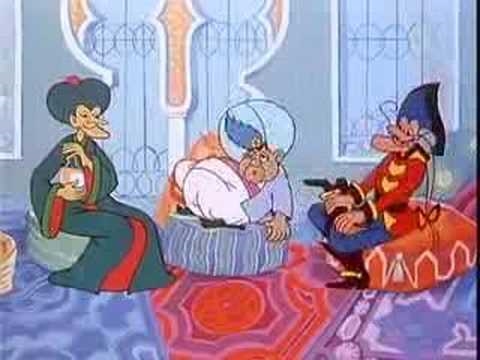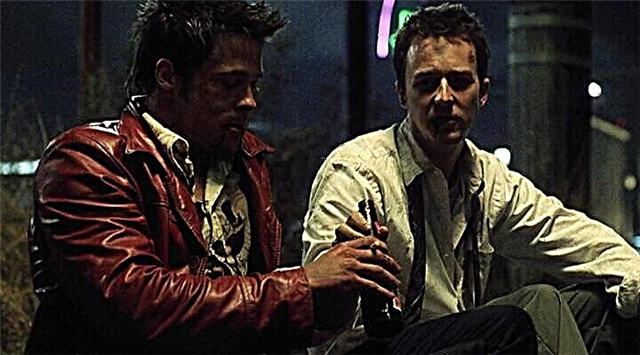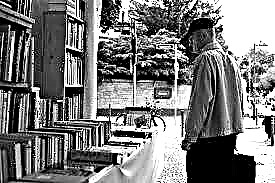A female narrator talks about her youth in Saigon. The main events relate to the period from 1932 to 1934.
A French girl of fifteen and a half years old lives in a state hostel in Saigon, and studies at the French Lyceum. Her mother wants her daughter to receive secondary education and become a mathematics teacher at the Lyceum. The girl has two brothers, one two years older than her — this is the “younger” brother, and the other, the older one, is three. She, not knowing why, loves her younger brother insanely. He considers the elder to be a disaster for the whole family, although his mother does not have a soul in him and loves, perhaps even more than the other two children. He steals money from relatives, from servants, arrogant, cruel. There is something sadistic about him: he rejoices when his mother bangs his sister, with wild fury, beats his younger brother for any reason. The girl’s father serves in Indochina, but gets sick early and dies. Mother carries all the hardships of life and upbringing of three children.
After the lyceum, the girl is transferred by ferry to Saigon, where her guesthouse is located. For her, this is a whole journey, especially when she travels by bus. She comes back after the holidays from Shadek, where her mother works as the principal of the women's school. Mother escorts her, entrusting the concerns of the bus driver. When the bus enters a ferry crossing one of the Mekong branches and the next from Shadek to Vinlong, it gets off the bus, leans on the parapet. She wears a worn silk dress, belted with a leather belt, high-heeled gold brocade shoes and a soft men's felt hat with flat brim and a wide black ribbon. It is the hat that gives the whole image of the girl a clear ambiguity. She has long copper-red heavy curly hair, she is fifteen and a half years old, but she is already dyed. Foundation, powder, dark cherry lipstick.
On the ferry next to the bus is a large black limousine. In a limousine, a driver in white livery and an elegant man, Chinese, but dressed in European style - in the light, light suit worn by bankers in Saigon. He always looks at the girl, as many look at her. A Chinese man approaches her, speaks up, offers to take him to a boarding house on his limousine. The girl agrees. From now on, she will never ride the local bus again. She is no longer a child and understands something. She understands that she is ugly, although if she wants to, it may seem so, she feels that it is not beauty and not outfits that make a woman desired. A woman either has sex appeal or not. This is immediately apparent.
In the car, they talk about the girl’s mother, with whom her companion is familiar. The girl loves her mother very much, but much is not clear to her in her. Her commitment to rags, old dresses, shoes, her bouts of tiredness and despair are incomprehensible. Mother is constantly trying to get out of poverty. Therefore, probably, she allows the girl to walk in the dress of a little prostitute. The girl is already well versed in everything, knows how to use the attention paid to her. She knows - it will help make money. When a girl wants money, her mother will not bother her.
Already in adulthood, the narrator discusses her childhood, how all the children loved her mother, but also how they hated her. The story of their family is a story of love and hate, and she cannot understand the truth in it, even from the height of her age.
Even before the man speaks with the girl, she sees that he is scared, and from the first minute understands that he is completely in her power. She also understands that today is the time to do what she has to do. And neither her mother nor her brothers should know about this. A slammed car door cut it off from the family once and for all.
One day, shortly after their first meeting, he calls her into a boarding house and they go to Cholon, the Chinese capital of Indochina. They enter his bachelor apartment, and the girl feels that she is exactly where she should be. He confesses to her that he loves her like crazy. She replies that it would be better if he did not love her, and asks to behave with her in the same way as he behaves with other women. She sees what pain her words inflict on him.
He has delightfully delicate skin. And the body is thin, devoid of muscles, so fragile, as if suffering. He groans, sobs. Choking on his unbearable love. And gives her a vast, incomparable sea of pleasure.
He asks why she came. She says: it was so necessary. They talk for the first time. She tells him about her family, that they have no money. She wants him along with his money. He wants to take her away, to go somewhere together. She still cannot leave her mother, otherwise she will die of grief. He promises to give her money. It is evening. He says that the girl will remember this day for her whole life, the memory will not fade and when she completely forgets him, even his face, even his name, will be forgotten.
They go outside. The girl feels that she is old. They go to one of the great Chinese restaurants, but no matter what they say, the conversation never goes about themselves. This continues the whole year and a half of their daily meetings. His father, the richest Chinese in Cholon, will never agree that his son marries this little white prostitute from Zhadek. He never dares to go against his father’s will.
The girl introduces her lover to her family. Meetings always begin with sumptuous dinners, during which the brothers gobble up terribly, and ignore the owner himself, without uttering a single word to him.
He takes her to a boarding house at night in a black limousine. Sometimes she doesn’t come to sleep at all. This is reported to the mother. Mother comes to the director of the guesthouse and asks to give the girl freedom in the evenings. Soon, a very expensive diamond ring appears on the ring finger, and the guards, although they are ripening that the girl is not engaged, completely stop making her comments.
Once a lover leaves for his sick father. He recovers and thus deprives him of his last hope of ever marrying a white girl. The father prefers to see his son dead. The best way out is her departure, separation from her, deep down, he realizes that she will never be faithful to anyone. This is evidenced by her face. Sooner or later, they still have to leave.
Soon, the girl and her family sail on a boat to France. She stands and looks at him and his car on the shore. She is in pain, she wants to cry, but she cannot show her family that she loves the Chinese.
Arriving in France, the mother buys a house and a piece of forest. The older brother loses all this in one night. During the war, he robbed his sister, as he always robbed his relatives, took the last food and all the money from her. He is dying on a gloomy, cloudy day. The younger brother died even earlier, in 1942, from bronchopneumonia in Saigon, during the Japanese occupation.
The girl does not know when her lover, obeying the will of her father, married a Chinese girl. Years passed, the war ended, the girl gave birth to children, got divorced, wrote books, and now many years later he comes with his wife to Paris and calls her. His voice is trembling. He knows that she writes books, her mother, whom he met in Saigon, told him about this. And then he says the main thing: he still loves her, as before, and will only love her alone until his death.




 Wow! Projects
Wow! Projects






